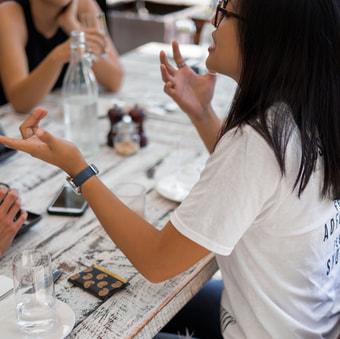Concussions and Return to Learn on College Campuses

Currently, our lab is working with the Complex Concussion Clinic at Shepherd Center to evaluate a peer mentoring program for college and university students with concussion, Success in College after Concussion with Effective Student Supports (SUCCESS). In previous work, we found that students have little knowledge about concussion or resources to support their return to the classroom. Students are often confused about what they are experiencing and how to get help. This program will pair students who have successfully returned to learn with students still in recovery and is made possible through the generosity of Andee's Army. Find out more about participating in this study on our Current Projects page and the SUCCESS website.
Returning to College after TBI and Concussion

Students with traumatic brain injury are a growing population on college campuses, reflecting improvements in medical and rehabilitative care that allow college to be an achievable goal for many students. In previous work, we examined the needs of college students with TBI, finding that students reported difficulties that fell into four broad categories: difficulty with studying and learning, time-management and organization, social settings, and nervousness/anxiety. For example, students often report feeling overwhelmed in class, having difficulty keeping up with the pace of work, and that friends do not understand their problems.
From this work, we piloted a program providing dynamic coaching in self-regulated learning strategies for students returning to college after TBI. Intervention focused on training to students to "self-regulate" their learning, meaning that students learned how to think critically about their learning needs. The coaching process helped students identify what made them successful at some tasks, and to identify struggles, then problem-solve how to manage those challenges by developing strategies to meet their needs. Students in our pilot program increased their use of strategies and the variety of strategies used, maintained grades, graduated, and are employed or furthering their education in their chosen fields.
From this work, we piloted a program providing dynamic coaching in self-regulated learning strategies for students returning to college after TBI. Intervention focused on training to students to "self-regulate" their learning, meaning that students learned how to think critically about their learning needs. The coaching process helped students identify what made them successful at some tasks, and to identify struggles, then problem-solve how to manage those challenges by developing strategies to meet their needs. Students in our pilot program increased their use of strategies and the variety of strategies used, maintained grades, graduated, and are employed or furthering their education in their chosen fields.
Cognitive-Communication Changes after Concussion

The presence of communication problems after concussion are not well understood, both in terms of incidence and also factors that may underlie or co-occur with reports of difficulty communicating. Furthermore, it is unclear what factors are associated with rehabilitation referrals for speech-language pathology services (communication, cognition, or otherwise), or the perceived role of SLPs in concussion management. The focus of this line of research is to better understand how communication changes may manifest after concussion – be it in verbal memory, word-finding, auditory working memory, reading, or writing, etc. – and to align rehabilitation approaches to the needs of these people.
Current studies are recruiting through the Complex Concussion Clinic at Shepherd Center in Atlanta, although future studies will recruit through the lab as well. Stay updated about current study opportunities by signing up through the participant registry.
Current studies are recruiting through the Complex Concussion Clinic at Shepherd Center in Atlanta, although future studies will recruit through the lab as well. Stay updated about current study opportunities by signing up through the participant registry.
Metamemory and Metacognition after Brain Injury

Following a brain injury, it is common for people to have difficulty remembering new information. The impaired memory system has changed from what the person once knew well. Our research looks at how people think about their memory and other cognitive processes, and how their knowledge of cognitive strengths and weaknesses changes after a brain injury. Knowing when our memory might fail us cues us to use strategies, like making a list or setting a timer. Rehabilitation often trains people with brain injury to use a variety of strategies to manage memory and other cognitive impairments; our work instead focuses on how we can develop metacognitive systems so the person can cue themselves on when and what strategy they need to use.

